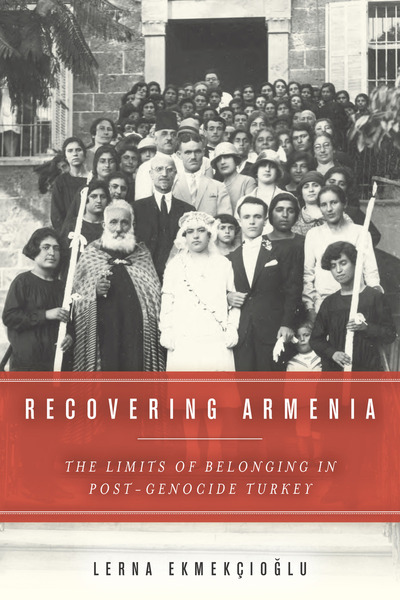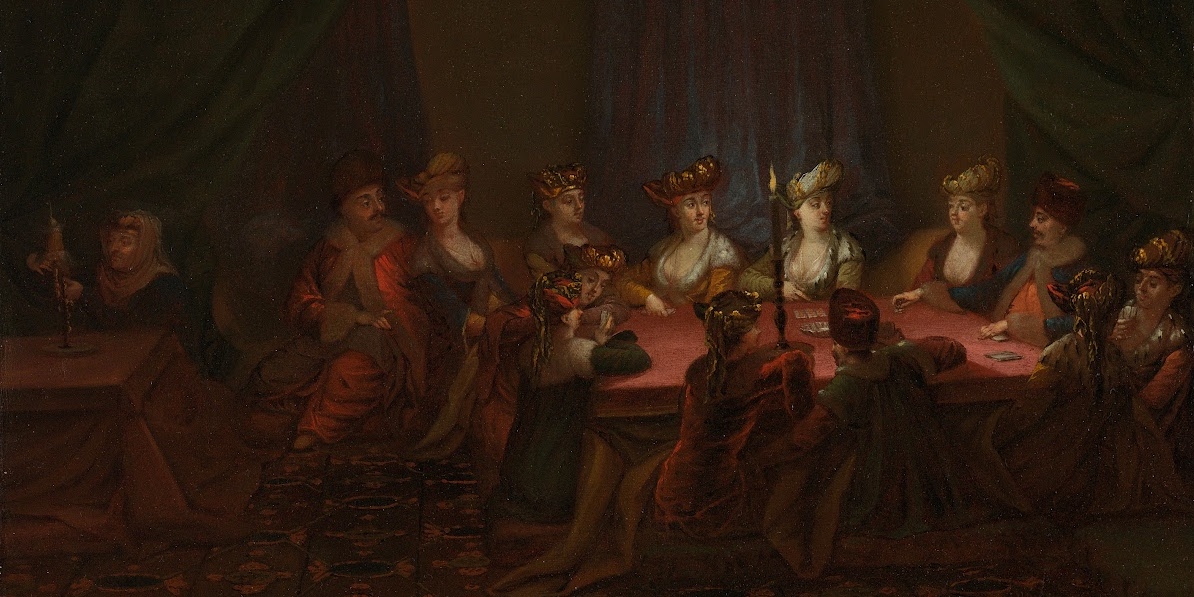Secular Dhimmis of the Republic
hosted by Chris Gratien, Nir Shafir, and Eda Çakmakçı
After facing the destruction of their community during the First World War, former Ottoman Armenians set about rebuilding in Turkey first during a period of relative optimism under the Allied occupation of Istanbul and later as non-Muslim citizens of new Turkish nation-state. In her new work entitled Recovering Armenia, Lerna Ekmekçioğlu explores the changes and continuities in the identity of Istanbul's Armenian community during this transformative period. In this interview, we explore Armenian collective politics, feminist movements, and expressions of loyalty through the Armenian press and through the writings of women in particular, and we examine the issue of Armenian belonging in Turkey through the lens of "secular dimmitude" among non-Muslim citizens of a predominantly Muslim but secular republic.
Stream via SoundCloud
PARTICIPANT BIOS
PARTICIPANT BIOS
 |
Lerna Ekmekçioğlu is McMillan-Stewart Associated Professor of History at Massachusetts Institute of Technology. She works on Armenian and Ottoman/Turkish history, including women’s history. |
 |
Chris Gratien holds a Ph.D. from Georgetown University's Department of History. His research focuses on the social and environmental history of the Ottoman Empire and the modern Middle East. He is currently preparing a monograph about the environmental history of the Cilicia region from the 1850s until the 1950s. |
 |
Nir Shafir is a historian of the Middle East whose research examines the intersections of knowledge production, religious practice, and material culture in the early modern world (1400-1800). He curates Ottoman History Podcast’s series on history of science in addition to being one of the co-founders of hazine.info, a website that explores the archives and libraries of the Islamic world. He is currently an advanced doctoral candidate in the History Department at UCLA.
|
 |
Eda Çakmakçı is a PhD student in the Anthropology and Middle Eastern Studies Program at Harvard University. Her research focuses on the politics of nature in Turkey. |
CREDITS
Episode No. 256
Release Date: 7 August 2016
Recording Location: Massachusetts Institute of Technology
Editing and production by Chris Gratien
Sound excerpts: Urakh Ler - Mari Pozapalian; Egil Daglar Ustunden Asam - Viktoriya Hanim; Harmandali - Recep Efendi, Cemal Efendi; Murat Kenarinda - Agyazar Efendi
Images and bibliography courtesy of Lerna Ekmekçioğlu
IMAGES
 |
| Cover of Nor Huys, 26 October 1935 (Courtesy of Lerna Ekmekçioğlu) |
 |
| Portrait of Hayganuş Mark by Ara Güler (Courtesy of Lerna Ekmekçioğlu) |
 |
| Recovering Armenia Lerna Ekmekçioğlu Stanford University Press, 2015 |
Al-Rustom, Hakem. “Rethinking the ‘Post-Ottoman’: Anatolian Armenians as an Ethnographic Perspective.” In A Companion to the Anthropology of the Middle East, edited by Soraya Altoriki, 452–79. Wiley-Blackwell, 2015.
Bilal, Melissa. “Longing for Home at Home: Armenians in Istanbul.” In Diaspora and Memory: Figures of Displacement in Contemporary Literature, Arts and Politics, edited by Marie-Aude Baronian, Stephan Besser, and Yolande Jansen. Amsterdam; New York: Rodopi, 2007.
———. “The Lost Lullaby and Other Stories about Being an Armenian in Turkey.” New Perspectives on Turkey 34 (March 2006): 67–92.
Çaylı, Eray. “‘Accidental’ Encounters with the Ottoman Armenians in Contemporary Turkey.” Études Arméniennes Contemporaines, no. 6 (December 30, 2015): 257–70.
Cheterian, Vicken. Open Wounds: Armenians, Turks and a Century of Genocide. Oxford University Press, 2015.
Dixon, Jennifer M. “Defending the Nation? Maintaining Turkey’s Narrative of the Armenian Genocide.” South European Society and Politics 15, no. 3 (2010): 467–85.
Erbal, Ayda. “Mea Culpas, Negotiations, Apologias: Revisiting the ‘Apology’ of Turkish Intellectuals.” In Reconciliation, Civil Society, and the Politics of Memory: Transnational Initiatives in the 20th and 21st Century, edited by Birgit Schwelling. Bielefeld: Transcript Verlag, 2012.
Göçek, Fatma Müge. Denial of violence: Ottoman past, Turkish present, and collective violence against the Armenians, 1789-2009. Oxford University Press, 2015.
Hacikyan, Agop. My Ethnic Quest : Minorities in Turkey. Gomidas Institute, 2012.
Kasbarian, Sossie. “The Istanbul Armenians: Negotiating Coexistence.” In Post-Ottoman Coexistence: Sharing Space in the Shadow of Conflict, edited by Rebecca Bryant. Berghahn Books, 2016.
Mahmood, Saba. Religious Difference in a Secular Age: A Minority Report. Princeton University Press, 2016.
Suciyan, Talin. The Armenians in Modern Turkey: Post-Genocide Society, Politics and History. I.B. Tauris, 2016.
Suciyan, Talin. The Armenians in Modern Turkey: Post-Genocide Society, Politics and History. I.B. Tauris, 2016.
Watenpaugh, Heghnar Zeitlian. “Preserving the Medieval City of Ani: Cultural Heritage between Contest and Reconciliation.” Journal of the Society of Architectural Historians., 2014, 528–55.










Comments
Post a Comment
Due to an overwhelming amount of spam, we no longer read comments submitted to the blog.